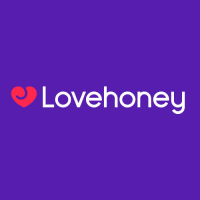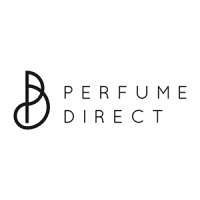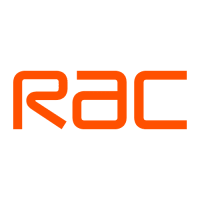Multnomah County, partners and community health workers use …
April 5, 2023 A glimpse inside how the Future Generations Collaborative works to protect community members and honor Native traditions. Step into Multnomah County’s Future Generations Collaborative’s (FGC) final vaccination celebration and it feels more like a family gathering than a medical event.
Children play with bubbles and elders eat food from a nearby food truck. DJ Gila River Monster plays an original mix. Next to the pop-up vaccination tent, a group gathers in a circle and passes around a smudge bowl.
Each person closes their eyes as they hold the sacred smoke before passing it to the next person in the circle. Jillene Joseph (Aaniiih), Native Wellness Institute executive director, gathers the group’s attention. “Each of us were impacted by the COVID-19 pandemic,” Joseph said. “We all have lost someone we love, whether that’s a family member, close friend or neighbor and here we are, at our last vaccination event.
My heart is so full that we can gather to celebrate our successes.” At a gathering in late March at the Native American Youth and Family (NAYA) Center in NE Portland, Joseph shared impressive statistics about the FGC’s COVID-19 response with community members and health providers. The collaborative:
- Administered over 5,750 COVID-19 vaccines and provided over 8,300 COVID-19 tests through the County supply;
- 36 partner organizations and seven community health workers provided wraparound care to over 22,000 community members;
- Hosted over 52 vaccination clinics; and
- Provided thousands of free hot meals, thousands of gift cards, thousands of resource bags (including culturally specific medicines, traditional foods and cultural supplies) and 2,051 food boxes at over 32 health and wellness events.
Using tradition to battle distrust
The COVID-19 pandemic disproportionately impacted Multnomah County’s Native American/Alaska Native population, which is the ninth largest concentration of urban Indians in the United States.
Black, Indigenous and other people of color have represented 40% of the County’s COVID-19 cases, despite accounting for only 30% of residents. Due to historical and ongoing mistrust of government and public health within Native communities, community health workers had to respond to the COVID-19 pandemic in a culturally competent way. This work started even before COVID-19 vaccines were available.
From the start of the pandemic, community health workers worked to dispel misinformation, provide household resources and food and make the community comfortable with vaccines. “One of our elders shared with us about how our ancestors were scientists because they studied the Creator and everything in creation,” said Joseph. “The Creator told us he knew what he needed to do to protect himself spiritually and physically and by protecting himself physically meant to get vaccinated because he believes in science.” Joseph and the team of community health workers took that message to the community to help build trust in science and vaccines.
Linking the health of the future to the past
The Future Generations Collaborative was formed by the Native Community in partnership with Multnomah County Health Department and other community partners in 2011 to promote healthy pregnancies and cultural healing in the Native community.
It was also created to improve the relationship between a government agency and the Native community that often suffered as a result of policies and systemic racism. When the first COVID-19 vaccines became available, the Collaborative helped community health workers, who furiously wanted to protect their community, set up vaccination events. “We were working on the heels of our ancestors, who experienced pandemics before, such as smallpox, so we knew our people would be retraumatized,” Joseph said. “To get our community vaccinated, our response had to be culturally responsive.”
The FGC held its first vaccination event in 2021 and its last event in March 2023 at NAYA’s center. “That event in 2021 was when we saw our elders for the first time since the lockdown happened,” said Jenny Brixey (Chahta, Welsh, Dutch), Multnomah County Native American and Alaska Native program specialist. “We’ve had so many events over the past three years, and it’s become a place for us to connect and see that people are okay.” Multnomah County Health Department interim director Valdez Bravo, who identifies as Native American, spoke about the importance of the FGC’s work in creating programming and specific outreach work with Native communities.
“There’s always a fair amount of trust needed in our community around vaccination events,” Bravo said. “The most effective ambassadors we have for vaccines, beyond a patient’s doctor, are folks known by the community. Community ambassadors are so important, especially with a Native community, because of the history of vaccinations and government mistrust.” Along with using traditional stories to encourage community members to get vaccinated, providing traditional medicines with vaccines helped combat distrust.
Brixey made thousands of cottonwood oil vials to help with the initial vaccination side effects. People were comforted to see cottonwood, a thousand-year-old remedy, alongside the COVID-19 vaccine, a three-year-old medical tool. “Since the first vaccine event, we have offered cottonwood oil to aid with arm soreness,” said Brixey. “We provided medicine with familiar smells and soothing properties people would recognize.”
Lucy Suppah (Warm Springs, Shoshone Bannock), a community health worker, was working a booth that had samples of traditional, plant-based medicine. As she assisted someone in making a bag of nettle tea, Suppah explained community members often feel more comfortable asking for traditional medicine at an FGC vaccination event than going to a doctor and feeling intimidated. “Providing traditional medicine alongside modern vaccines created pathways to make the community more inclined to reach out for help, knowing some of the relief being provided is more familiar to them than Western medicine,” Suppah said.
Brianna Bragg, (Ihanktonwan, French, Norwegian) Multnomah County Native American and Alaska Native senior program specialist, explained how the vaccination events created safe spaces for the community to receive care without having to explain themselves. “To be seen in healthcare means you have somebody providing medical care that gets your community and understands the cultural significance and the history,” Bragg said. After the first few vaccine events, it became clear the Native community had other unmet needs.
The FGC and its partners began to provide other free resources such as personal hygiene kits, practical household items such as toilet paper and soap, clothing, food and grocery gift cards to community members. The resources provided both an incentive for people to get vaccinated and the ability to give wrap around services to the community. “We provided a needed resource and people showed up,” said Joseph. “The need was there, the service was provided and people responded.”
No matter where or when the FGC held vaccination events, people kept showing up to access resources. Last October, when it was pouring rain and freezing outside, community health workers did not think anybody would come to the event. Nearly 100 people showed up, proving how vital these vaccination events were for the community.
Vaccinations for future generations
A group of elders was eating dinner watching a child get their vaccine.
An elder explained the importance for Native people to get vaccinated.  “We are relational people, and we like to see each other.
“We are relational people, and we like to see each other.
It’s been a tough three years. We lost a lot of people, and now have a resource to save lives,” said Linda. “If our ancestors had never gotten vaccinated from smallpox, there was a chance none of us would be sitting here today.” The FGC vaccination events started as a means to vaccinate the Native community, but have turned into safe gathering spaces for the community to ask questions and receive resources.
Bragg hopes decision-makers can appreciate the impact of community-driven public health.
They see the vaccination clinics not just as a tool to prevent illness today but as an investment in Native communities’ future generations.
“Having culturally-specific public health is important for all aspects of wellness,” Bragg said. “If we can take our response to COVID-19 as a microcosm of all the different issues impacting our community, and we start investing in it, we can see really positive outcomes.”





